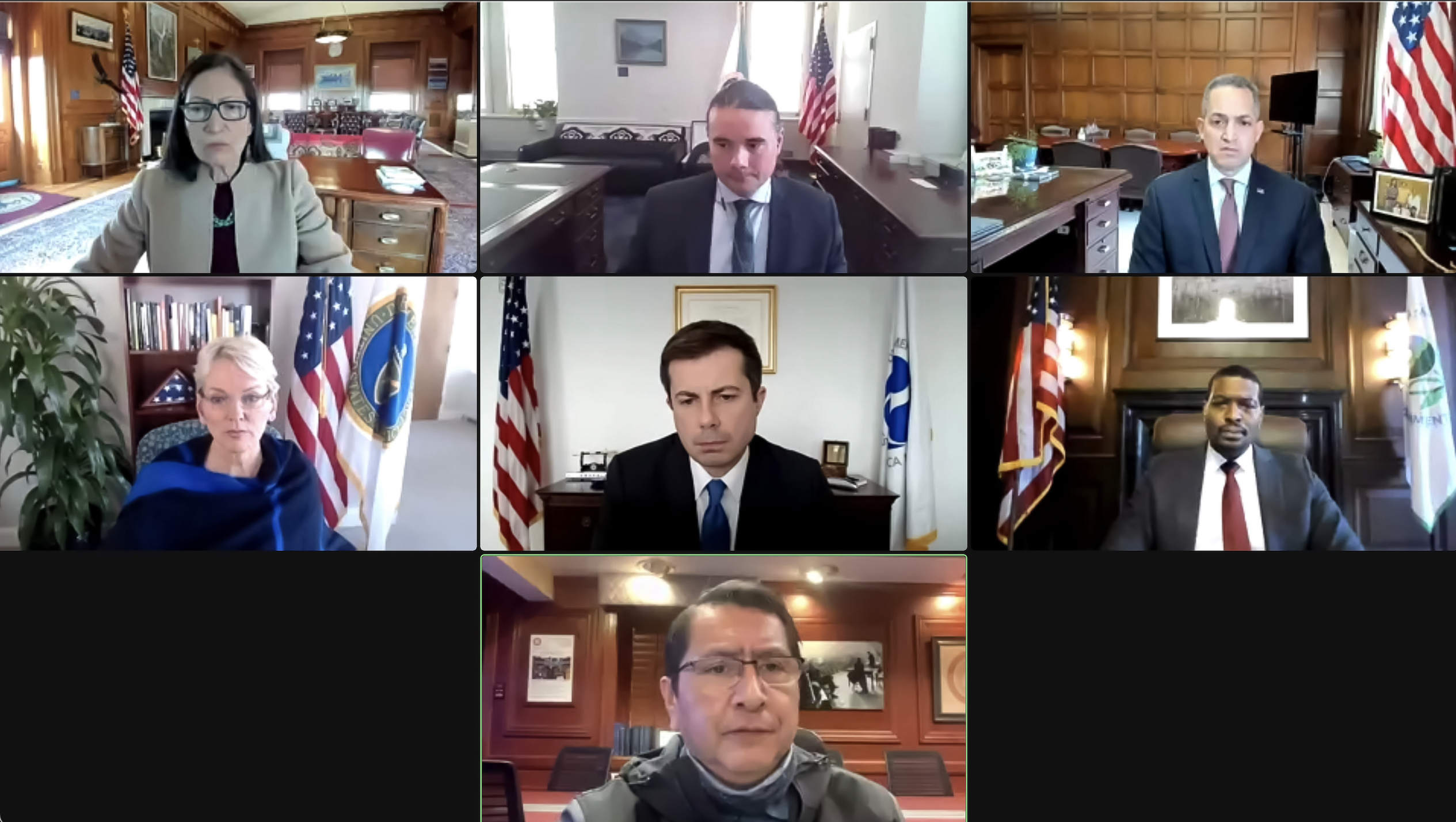
- Details
- By Native News Online Staff
On Monday, Secretary of the Interior Deb Haaland led the White House Council on Native American Affairs’ engagement session with tribal leaders on how they want to use the $13 billion tribal set-aside in President Biden’s Infrastructure Bill.
Also in attendance at Monday's remote conference were various government officials representing the different sectors impacted by the infrastructure bill, including the Secretary of Transportation, Pete Buttigieg.
Navajo Nation President Jonathan Nez on Monday stressed the need to streamline—and thus speed up—the approval process for environmental assessments and securing rights of ways for infrastructure development.
Want more Native News? Get the free daily newsletter today.
“Many of the projects funded by the Bipartisan Infrastructure Law will take years to come to fruition because of the various layers of approval required to build any kind of infrastructure,” Nez said in written remarks from the listening session released by the Navajo Nation. “We need to be able to streamline the approval process. We circulated a white paper detailing these issues and we can work to overcome this. Once again, we urge this Administration to improve these administrative processes. Without doing so, it will take years for tribal communities to reap the benefits promised to them in the Infrastructure Law.”
The session also focused on implementation of President Biden’s executive order on Improving Public Safety and Criminal Justice for Native Americans and Addressing the Crisis of Missing and Murdered Indigenous People, which includes tribal consultation once agian.
In November, Haaland committed to convening WHCNAA three times a year to listen to feedback, questions, and concerns from tribal communities. Monday marked the first of three meetings.
The White House Council on Native American Affairs was established by former President Barack Obama in 2013, to improve the use of available federal resources for the benefit of tribal communities. The Biden-Harris Administration brought back the council, co-chaired by Secretary Haaland and White House Domestic Policy Advisor Ambassador Susan Rice.
More Stories Like This
Native News Weekly (August 25, 2024): D.C. BriefsSAVE THE DATE: GVSU’s “Celebrating All Walks of Life” Powwow Set for April 4th
Monday Morning: (February 16, 2026): Articles You May Have Missed This Past Weekend
US Presidents in Their Own Words Concerning American Indians
Osage Nation Mourns the Passing of Former Principal Chief Jim Gray
Help us defend tribal sovereignty.
At Native News Online, our mission is rooted in telling the stories that strengthen sovereignty and uplift Indigenous voices — not just at year’s end, but every single day.
Because of your generosity last year, we were able to keep our reporters on the ground in tribal communities, at national gatherings and in the halls of Congress — covering the issues that matter most to Indian Country: sovereignty, culture, education, health and economic opportunity.
That support sustained us through a tough year in 2025. Now, as we look to the year ahead, we need your help right now to ensure warrior journalism remains strong — reporting that defends tribal sovereignty, amplifies Native truth, and holds power accountable.
 The stakes couldn't be higher. Your support keeps Native voices heard, Native stories told and Native sovereignty defended.
The stakes couldn't be higher. Your support keeps Native voices heard, Native stories told and Native sovereignty defended.
Stand with Warrior Journalism today.
Levi Rickert (Potawatomi), Editor & Publisher

